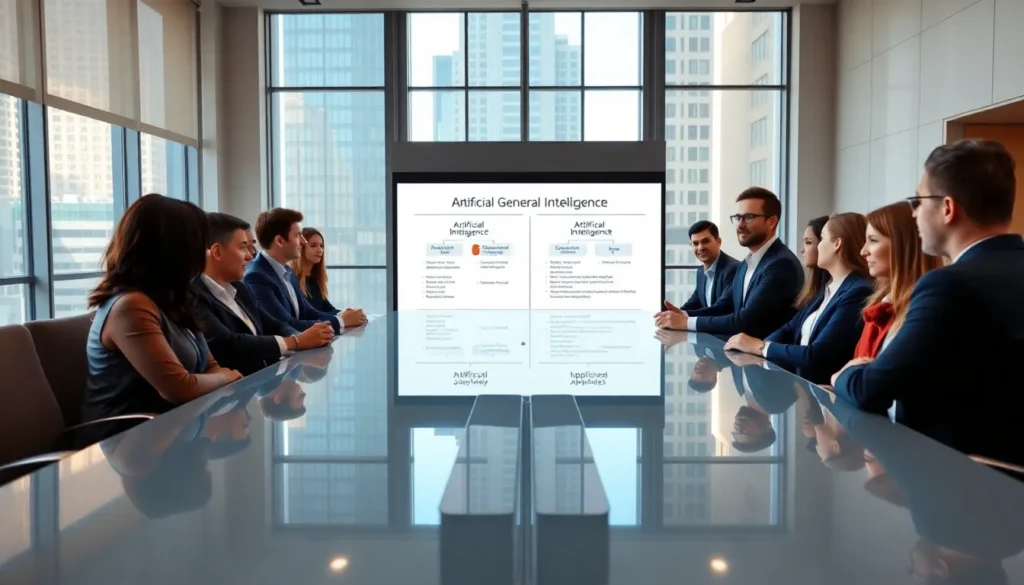Table of Contents
ToggleIn today’s digital landscape, privacy compliance has become a critical concern for businesses and consumers alike. With the rise of data breaches and stringent regulations like GDPR and CCPA, organizations must navigate a complex web of legal requirements to protect personal information. Failing to comply can lead to hefty fines and damage to reputation, making it essential for companies to stay informed and proactive.
Understanding privacy compliance isn’t just about adhering to laws; it’s about fostering trust with customers. As individuals become more aware of their data rights, businesses that prioritize transparency and security will stand out in a crowded market. This article explores the key aspects of privacy compliance and offers insights on how organizations can effectively manage their data practices while ensuring they meet legal obligations.
Understanding Privacy Compliance
Privacy compliance involves adhering to legal regulations governing the collection, use, and protection of personal data. Organizations prioritize compliance to secure customer information and maintain trust.
Definition of Privacy Compliance
Privacy compliance refers to the obligation of organizations to follow laws and regulations concerning data protection. It includes guidelines like the General Data Protection Regulation (GDPR) and the California Consumer Privacy Act (CCPA). These regulations set standards for data handling, ensuring that individuals’ personal information receives adequate protection. Compliance involves implementing specific policies, practices, and technical measures to safeguard sensitive data from unauthorized access and breaches.
Importance of Privacy Compliance
Privacy compliance plays a crucial role in business operations. It helps organizations avoid significant legal penalties, which can reach millions of dollars. Compliance cultivates consumer trust by demonstrating a commitment to safeguarding personal data. Trust leads to customer loyalty and enhances brand reputation. Additionally, organizations that prioritize privacy compliance can stay competitive, as consumers increasingly favor businesses that respect their privacy rights. Complying with privacy regulations often results in more efficient data management practices, ultimately benefiting operational efficiency.
Key Regulations Affecting Privacy Compliance

Regulatory frameworks play a critical role in shaping privacy compliance practices. Understanding these key regulations ensures organizations implement effective data protection strategies.
General Data Protection Regulation (GDPR)
GDPR, effective since May 2018, governs data protection for individuals in the European Union (EU) and the European Economic Area (EEA). GDPR mandates strict consent requirements for collecting personal data, granting individuals rights such as data access, modification, and deletion. Organizations must implement measures like data protection impact assessments and appoint data protection officers when processing high-risk data. Non-compliance can result in fines up to €20 million or 4% of annual global turnover, whichever is higher.
California Consumer Privacy Act (CCPA)
CCPA, enacted in January 2020, protects the privacy rights of California residents. It requires businesses to disclose the types of personal information collected, the purposes of data collection, and the right to opt-out of data selling. CCPA applies to for-profit entities that meet specific revenue thresholds or collect data from over 50,000 consumers. Violations can lead to fines of up to $2,500 per violation and $7,500 for intentional violations. The CCPA aims to empower consumers and enhance transparency in data handling practices.
Best Practices for Achieving Privacy Compliance
Achieving privacy compliance requires a systematic approach that incorporates audits and robust data protection policies. Organizations benefit from these practices by minimizing risks associated with data breaches and enhancing consumer trust.
Conducting Privacy Audits
Conducting privacy audits helps organizations assess their data handling processes. Organizations should regularly review their data collection methods, storage procedures, and sharing practices. Audits facilitate identifying compliance gaps and potential vulnerabilities. Using tools such as data mapping allows for clearer visibility into personal data flows and storage locations. It’s essential for organizations to document audit results thoroughly, ensuring specific actions address identified issues, and establish a timeline for follow-up assessments.
Implementing Data Protection Policies
Implementing data protection policies forms the foundation of privacy compliance. Organizations must create clear, comprehensive policies that outline data handling procedures, including data access, retention, and disposal. Training programs should educate employees on these policies and best practices to ensure awareness and proper adherence. Organizations need to enforce strict access controls, requiring authorization for data access based on the principle of least privilege. Regularly reviewing and updating these policies is crucial to keep pace with evolving regulations and technological advancements.
Challenges in Privacy Compliance
Organizations face significant challenges in maintaining privacy compliance due to evolving regulations and technology-related data management issues.
Evolving Regulations
Regulatory frameworks continue to change, creating hurdles for businesses striving to maintain compliance. Organizations must stay informed about new regulations such as the General Data Protection Regulation (GDPR) and the California Consumer Privacy Act (CCPA), which frequently undergo revisions. Compliance requirements can vary drastically by jurisdiction, leading to confusion and additional compliance burdens for multinational companies. For example, while GDPR mandates stringent consent protocols, different regions may prioritize different aspects of data privacy, complicating a uniform compliance strategy. Organizations that do not swiftly adapt to these changes risk severe financial penalties and damage to their reputation.
Technology and Data Management Issues
Technology advancements often outpace regulatory measures, making it difficult for organizations to implement compliant data management practices. Many businesses struggle with legacy systems that do not support current data protection standards. Data breaches remain a concern, often resulting from inadequate security measures or outdated software. For instance, when personal data is improperly encrypted or stored insecurely, organizations expose themselves to compliance violations. Additionally, the use of cloud services introduces new risks, as organizations must evaluate third-party vendor compliance. Ensuring proper data handling and protection protocols in an ever-changing technological landscape requires continuous investment and focus from compliance teams.
Future Trends in Privacy Compliance
Organizations face evolving challenges in privacy compliance as technology and consumer expectations shift. Future trends reflect increased scrutiny on data practices and adapt to regulatory changes.
Impact of Artificial Intelligence
Artificial Intelligence (AI) is reshaping privacy compliance strategies. AI technologies analyze vast datasets, allowing businesses to streamline compliance processes and enhance risk management. Usage of AI-powered tools can automate data tracking and reporting, providing real-time insights into compliance statuses. However, reliance on AI also demands a critical examination of ethical implications and biases. Companies must ensure that AI systems respect privacy rights and comply with regulations, integrating accountability measures and transparency into AI applications.
Increased Focus on Consumer Rights
Consumer rights are gaining prominence in privacy compliance frameworks. With regulations like GDPR and CCPA emphasizing individual data protection rights, businesses must prioritize consumer consent and preferences. Organizations increasingly empower consumers by providing clear access to their data and control over its usage. Future compliance strategies will likely incorporate user-friendly privacy dashboards, allowing individuals to manage their personal information effectively. As consumers become more informed about their rights, businesses that adopt proactive measures to safeguard these rights will foster trust and loyalty.
Embracing privacy compliance is essential for organizations navigating today’s complex digital landscape. By prioritizing data protection and transparency, businesses not only adhere to legal regulations but also foster stronger relationships with their customers. The evolving nature of privacy laws and technological advancements necessitates a proactive approach to compliance.
Investing in robust data management practices and staying informed about regulatory changes will empower organizations to mitigate risks effectively. As consumer expectations continue to shift, those who prioritize privacy will likely gain a competitive edge. Ultimately, a commitment to privacy compliance is an investment in trust and long-term success.







